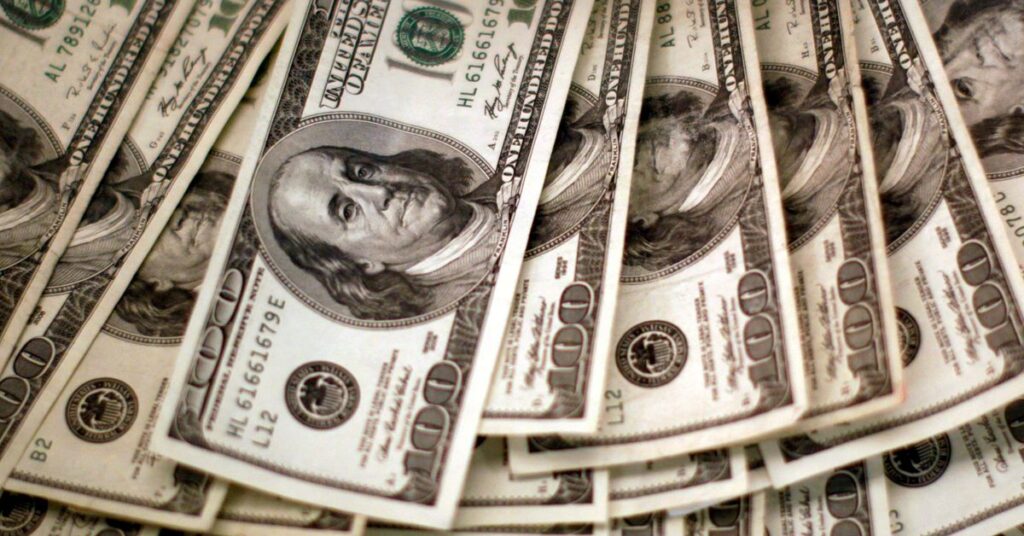[1/2]U.S. dollars are counted out by a banker counting currency at a bank in Westminster, Colorado November 3, 2009. REUTERS/Rick Wilking/File Photo
LONDON/NEW YORK, July 11 (Reuters) – The dollar dropped to a two-month low against a major currency index, after Federal Reserve officials signalled that the central bank is near the end of its tightening cycle, while sterling hit a 15-month high after pay growth exceeded expectations.
Against the yen, the dollar fell to a four-week trough of 140.17. It last traded down 0.4% at 140.75 yen. The U.S. currency also plunged to its lowest in two-and-a-half years versus the Swiss franc and was last at 0.8829 francs, down 0.2%.
Several Fed officials said on Monday the central bank would likely need to raise interest rates further to bring down inflation but the end to its current monetary policy tightening cycle was getting close.
The comments knocked the greenback to a two-month low of 101.66 against a basket of currencies , as traders pared back their expectations about how much further U.S. rates may have to rise. The dollar index was last slightly down at 101.89.
“The broad takeaway from yesterday’s slate of speakers is that the Fed is essentially on auto-pilot ahead of its July meeting – and with a string of other releases set to drop between now and Jackson Hole, this has meant that the relative importance of tomorrow’s consumer price report is being downplayed on currency markets,” said Karl Schamotta, chief market strategist, at Corpay in Toronto.
Markets are now focusing their attention on U.S. consumer prices data due out on Wednesday, which will provide more clarity on the progress the Fed has made in its fight against stubbornly high inflation.
“Market participants should remember that U.S. data releases still have the capacity to shock: if the core or ‘supercore’ inflation measures surprise to the upside, front-end yields could leg higher once again, and the dollar might stage a surprising rebound,” Schamotta added.
EUROPEAN CURRENCIES STRENGTHEN
Sterling hit a near 15-month high of $1.2934 after British wage growth hit a joint record high, heaping pressure on the Bank of England to tighten policy further to bring inflation under control. It was last up 0.2% at $1.2891.
The pound has been rallying on a stronger economy and aggressive repricing of expectations for tighter BoE policy, according to Danske Bank FX analyst Kirstine Kundby-Nielsen.
The euro rose to two-month peaks of $1.1027 , and last changed hands at $1.096, down 0.1%.
Other European currencies were also strong, with the Norwegian crown hitting a near three-month high the Swedish crown at a two-week peak against the dollar.
At its June meeting, the Swiss National Bank reiterated it was ready to intervene in the FX market to boost the value of the franc and reduce the effect of more expensive imports.
In Japan, the yen has risen more than 3% from a seven-month low touched last month, when it weakened past the closely watched 145 per dollar level that put traders on high alert for possible intervention from Japanese authorities.
Elsewhere, the Australian dollar eased 0.2% to US$0.6662, while the New Zealand currency was down 0.5% to US$0.6181 ahead of the Reserve Bank of New Zealand policy decision on Wednesday.
========================================================
Currency bid prices at 9:42AM (1342 GMT)
Reporting by Samuel Indyk in London and Gertrude Chavez-Dreyfuss in New York; Additional reporting by Rae Wee in Singapore; Editing by Edmund Klamann, Alex Richardson, Chizu Nomiyama and Louise Heavens
: .


